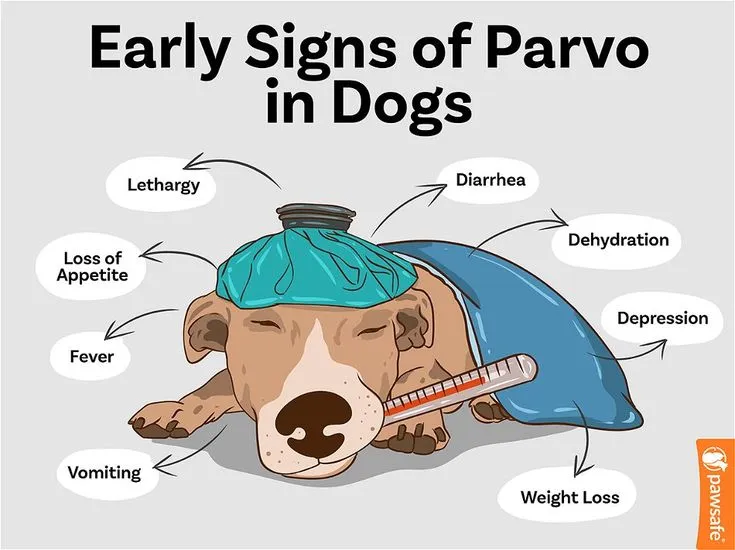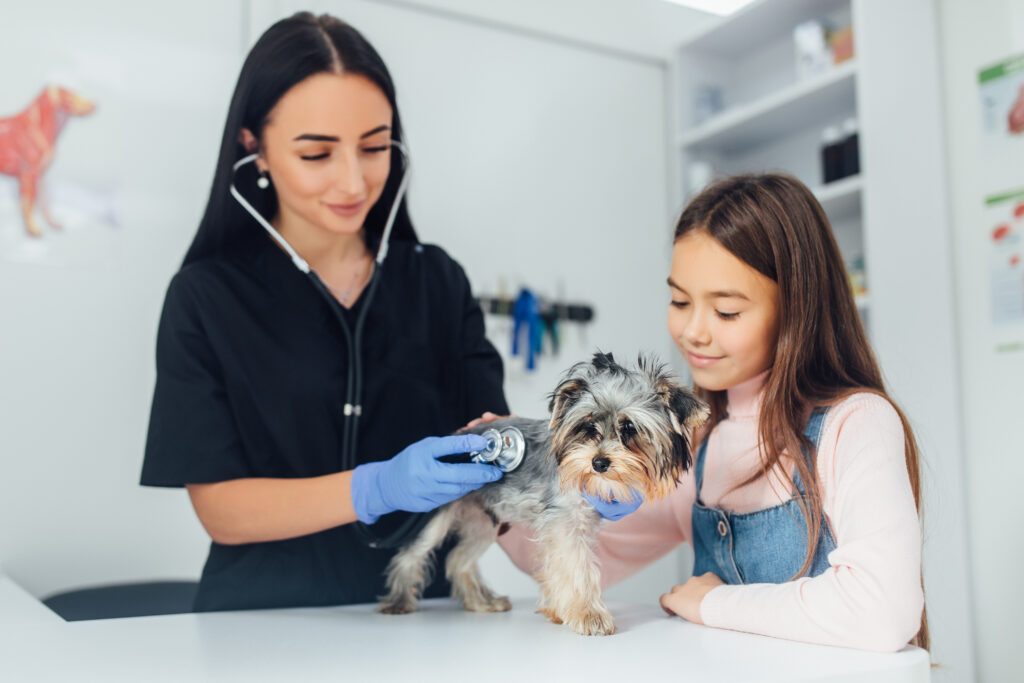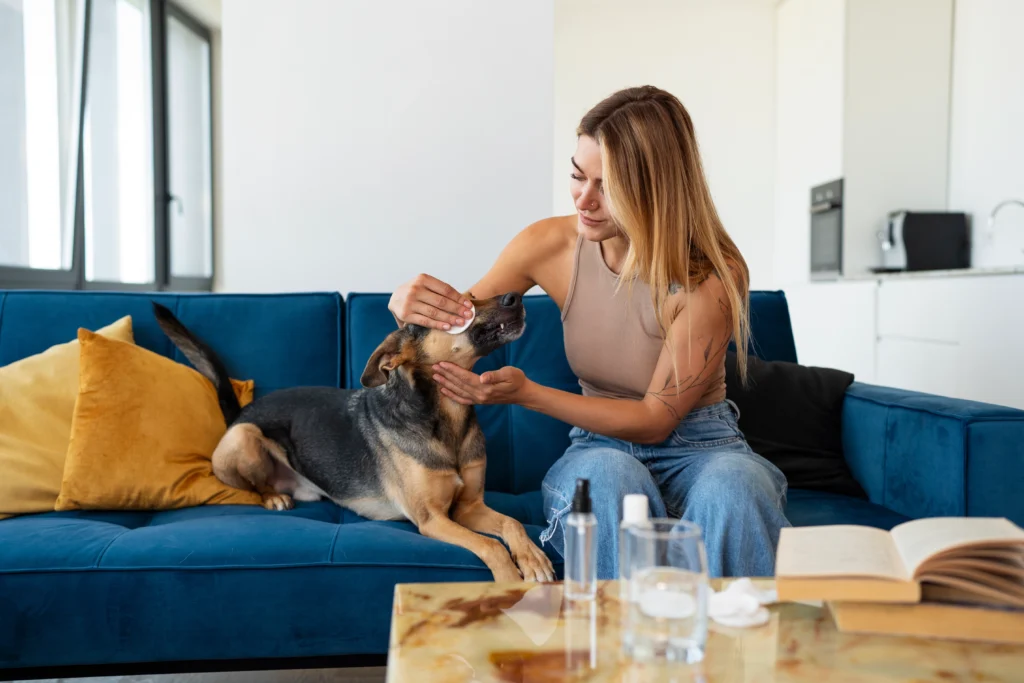Best Parvo Medicine for Dogs: How to Care for Your Dog with Parvo at Home
Parvovirus, or “parvo,” is a very serious sickness that can make dogs, especially puppies, very sick. If your dog catches parvo, they can feel really bad and need lots of help to get better. In this blog, we will talk about the best parvo medicine for dogs and how you can take care of your dog with parvo at home. The information is simple so that even a young child can understand how to help a sick dog.
What Is Parvo?
Parvo is a virus that makes dogs very sick. It mostly affects puppies, but older dogs can get it too. Parvo makes dogs throw up, have diarrhea, and feel very weak. Dogs with parvo can lose a lot of water from their bodies, which makes them even weaker. If a dog has parvo, they need help fast.
Signs That Your Dog Has Parvo

- Vomiting: Your dog might throw up a lot.
- Diarrhea: Your dog might have very bad, often bloody, diarrhea.
- No Energy: Your dog might seem very tired and not want to play or eat.
- Fever: Your dog might have a high temperature.
- Weight Loss: Your dog might lose weight very quickly.
If you see these signs, you should take your dog to the vet right away.
Best Parvo Medicine for Dogs
There is no single medicine that cures parvo, but there are medicines that can help your dog feel better. Here are some medicines that vets use to help dogs with parvo:
Antiviral Medicine: This medicine helps to slow down the virus in your dog’s body. It doesn’t cure parvo, but it can help your dog fight the virus.
Antibiotics: Parvo can make it easy for other infections to make your dog sick. Antibiotics help stop these infections.
Medicine for Vomiting and Diarrhea: This medicine helps stop your dog from throwing up and having diarrhea. It helps your dog feel better and keeps them from losing too much water.
Pain Medicine: If your dog is in pain, the vet might give them pain medicine to help them feel more comfortable.
Fluids: Dogs with parvo lose a lot of water, so they need fluids to stay strong. Sometimes, the vet gives fluids through a drip to keep your dog hydrated.
It’s important to talk to your vet before giving your dog any medicine. The vet knows what is best for your dog and will help you choose the right treatment.
How to Care for a Dog with Parvo at Home

If your dog has parvo, they will need a lot of care and attention at home. Here are some tips to help your dog get better:
Keep Your Dog Away from Other Pets: Parvo is very contagious, which means it can spread easily to other dogs. Keep your sick dog in a separate room to stop the virus from spreading.
Give Your Dog Lots of Water: Dogs with parvo can get dehydrated (lose too much water). Make sure your dog drinks a lot of water. If your dog won’t drink, you might need to give them fluids through a syringe (without a needle) or talk to your vet.
Feed Your Dog Small Meals: Your dog’s tummy might be upset, so give them small meals of soft food like boiled chicken and rice. Don’t give them too much at once, and make sure the food is easy to digest.
Watch for Changes: Keep a close eye on your dog’s symptoms. If your dog gets worse, you should contact the vet right away. It’s important to catch any problems early.
Clean Up Well: Parvo can live on surfaces like floors, bedding, and even your hands. Clean everything your dog touches with bleach or another strong cleaner to kill the virus.
Make Your Dog Comfortable: Give your dog a warm, quiet place to rest. A soft bed in a quiet room is perfect. Spend time with your dog so they don’t feel alone.
Helping Your Dog Survive Parvo

Caring for a dog with parvo is hard, but with love and the right care, your dog can survive. Here’s how you can help:
Act Quickly: If you think your dog has parvo, take them to the vet immediately. The faster you get help, the better your dog’s chances are.
Stay Calm: Dogs can feel your emotions. If you are calm, your dog will feel safer and more relaxed.
Follow the Vet’s Advice: Always listen to what your vet tells you. Give your dog the medicine the vet prescribes, and follow their instructions carefully.
Love and Patience: Your dog will need a lot of love and patience. Sit with them, pet them, and let them know you’re there. Your love can make a big difference in their recovery.
Vaccinate Other Dogs: If you have other dogs, make sure they get vaccinated against parvo. This can protect them from getting sick too.
sit amet, consectetur adipiscing elit. Ut elit tellus, luctus nec ullamcorper mattis, pulvinar dapibus leo.
The best way to protect your dog from parvo is to prevent it from happening in the first place. Here’s how you can do that:
Get Your Dog Vaccinated: Vaccinations are the most important way to protect your dog from parvo. Make sure your dog gets their parvo vaccine on time.
Keep Your Dog Away from Sick Dogs: Don’t let your dog play with dogs that might be sick. Parvo spreads easily, so be careful who your dog interacts with.
Clean Up After Your Dog: Always clean up after your dog, especially in places where other dogs play. This helps stop the spread of the virus.
Be Careful at Dog Parks: Parvo can live in the soil for a long time. Be careful when taking your dog to parks or other places where many dogs go.
Watch for Symptoms: Keep an eye on your dog’s health. If they start showing signs of parvo, act quickly.
Conclusion
Parvo is a very serious illness, but with the right care, medicine, and lots of love, your dog can get better. Remember to always follow your vet’s advice, keep your dog comfortable, and give them all the attention they need. For more tips and help with caring for your pets, visit Celebs Pet Care. Your dog is counting on you to help them, and with your care, they have a good chance of getting better.
FAQs...
There isn’t one specific medicine that cures parvo, but a combination of antiviral drugs, antibiotics, anti-nausea medicines, and fluids are commonly used to help dogs recover. It’s important to consult with a vet to get the best treatment for your dog.
Yes, with proper guidance from a vet, you can care for a dog with parvo at home. This includes giving prescribed medicines, keeping your dog hydrated, and ensuring they rest in a clean and comfortable environment.
Recovery time can vary, but with proper treatment, a dog might start to feel better within a week. However, full recovery can take several weeks.
The best way to prevent parvo is by getting your dog vaccinated. Make sure to keep up with booster shots and avoid contact with sick dogs or areas where the virus might be present.
If you suspect your dog has parvo or if they show any symptoms like vomiting, diarrhea, or lethargy, contact your vet immediately. Early treatment is crucial for survival.
While puppies are more susceptible to parvo, older dogs can also get the virus, especially if they haven’t been vaccinated.
Need More Help? Visit Celebs Pet Care!
If you’re looking for more detailed advice or need expert guidance on caring for your pets, visit Celebs Pet Care. Our website is filled with helpful resources, tips, and professional services to keep your pets healthy and happy. Whether you need the best products, trusted advice, or a friendly chat with a vet, we’re here to help you every step of the way!



